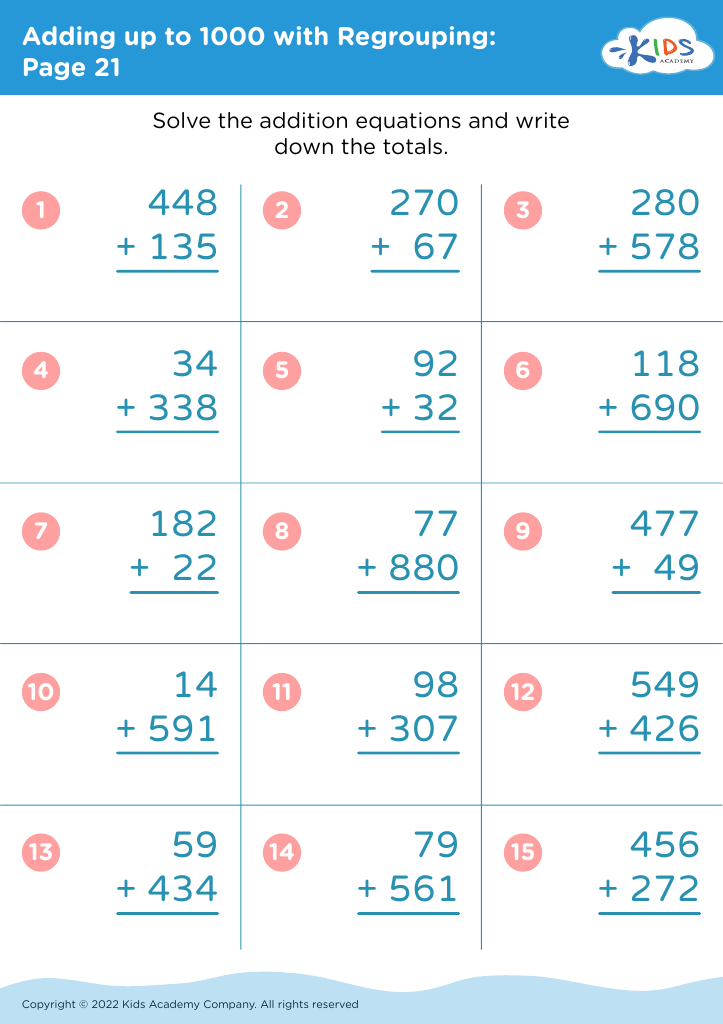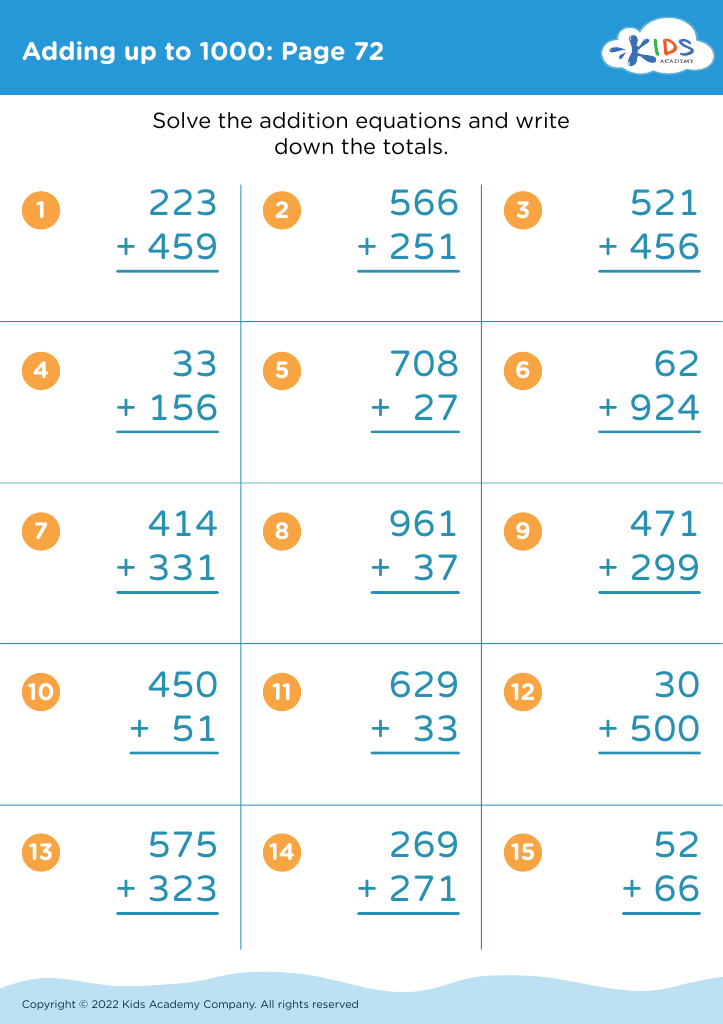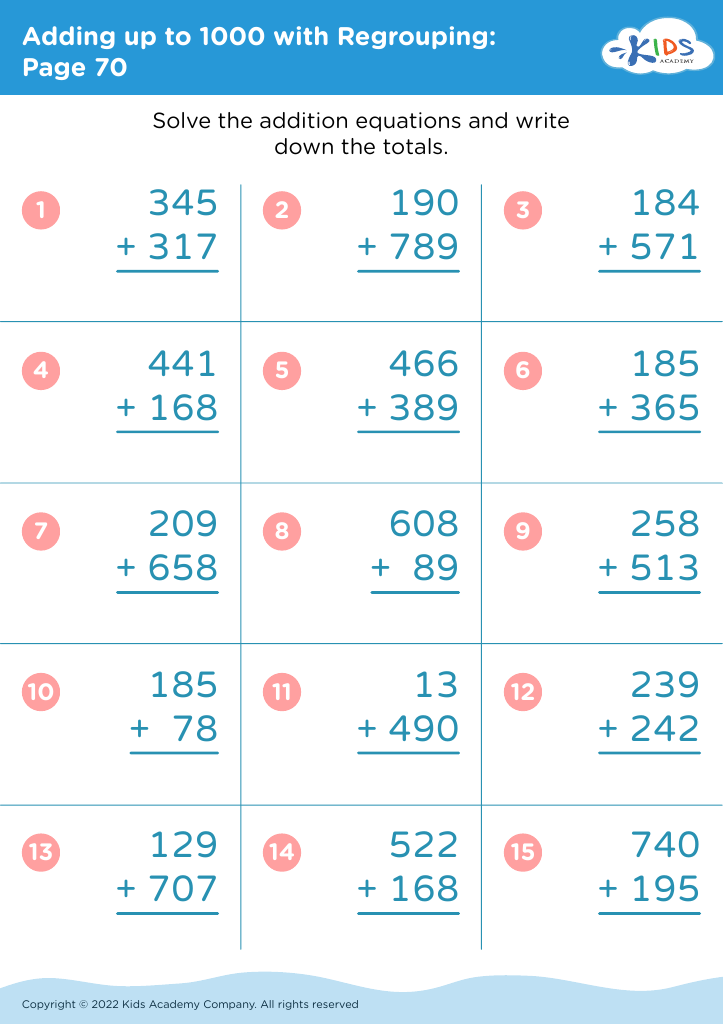Understanding Sequences Adding up to 1000 Worksheets for Ages 5-7
6 filtered results
-
From - To
Discover our engaging "Understanding Sequences Adding Up to 1000" worksheets, specifically designed for children ages 5-7. These educational resources help young learners grasp the concept of number sequences while developing their math skills. With colorful illustrations and age-appropriate exercises, these worksheets make learning fun and interactive. Children will work on identifying, completing, and extending number patterns, enhancing their ability to recognize relationships between numbers. Tailored to foster a strong mathematical foundation, our worksheets ensure that kids build confidence in their abilities as they explore sequences that add up to 1000. Start your child’s math journey today with our exciting resources!
Understanding sequences that add up to 1000 is an essential skill for children aged 5-7, and it's crucial for parents and teachers to pay attention to this developmental milestone. First, it lays the foundation for strong mathematical skills, as young learners begin to grasp the concept of numbers, patterns, and relationships. By engaging with sequences, children learn to recognize order, which enhances their critical thinking and problem-solving abilities.
Moreover, sequences often present in real-life situations—such as counting objects, understanding time, or dealing with money—make mathematics relevant and practical. Encouraging kids to experiment with addition and subtraction of sequences allows them to develop confidence and independence in their numerical abilities.
Furthermore, mastery of sequences fosters perseverance and resilience, as children learn to tackle challenges systematically. This intellectual agility builds a pathway for advanced mathematical concepts later on, enhancing their academic trajectory.
Fostering a rich understanding of sequences culminates in better performance in math beyond early education, supporting conclusions of research that indicates early math skills are predictive of future academic success. Thus, parents and teachers should actively nurture these skills in children to help them lay a strong groundwork for lifelong learning and achievement.

















